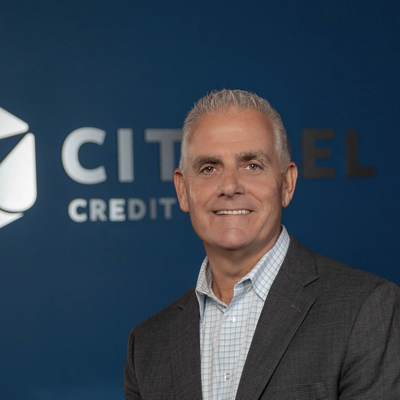When I joined the credit union world in October 2023, I was stepping into a world both familiar and entirely new. Having spent 25+ years in financial services, including roles at some of the largest and most complex global banks, I thought I had seen it all. What attracted me to the credit union model—and what has been reaffirmed in my first year—is its unique and sole focus on putting members first. This offers a profoundly different way to think about financial services.
A career built on breadth and depth
Before joining a credit union, my career spanned global giants like Citi and HSBC, regional stalwarts like Investors Bank, and specialized global financial institutions like BNY Mellon. In these roles, I led teams in retail banking, business banking, wealth management, lending, and risk management, providing me a front-row seat to the complexities and opportunities in financial services.
These experiences shaped my approach to leadership. Managing large, multi-layered organizations requires focus on operational efficiency, risk mitigation, and delivering shareholder value. I learned the importance of disciplined execution and the power of innovation to meet client needs. But the scale and shareholder-driven nature of these institutions often left little room for the personal connections that truly define financial relationships. Publicly traded banks have a fiduciary responsibility to their shareholders. This means that bank directors and senior management must act in the best interests of the bank and its shareholders
Why credit unions are different
Credit unions operate on a fundamentally different model compared to traditional banks. As not-for-profit institutions, they exist to serve their members rather than generate profits for shareholders. This distinction manifests in everything credit unions offer from lower fees and better interest rates to a more personal and community-focused approach to financial services.
One of the most striking contrasts is the alignment of priorities. In a credit union, leaders guide every decision based on how it will benefit the member-owners. This mission-driven approach fosters a level of trust and loyalty that is hard to achieve in shareholder return-driven organizations. It is a credit union’s responsibility to focus on long-term member satisfaction rather than short-term financial performance.
Our growth is designed to make us stronger and more reliable for our members. At Citadel Credit Union, we embrace this member-focused philosophy daily, striving to deliver personalized financial solutions that empower our members to achieve their goals while contributing to the greater good of the communities we serve in the Greater Philadelphia region.
While the focus of a credit union differs fundamentally from that of a bank, the tools and strategies learned over the years have proven invaluable. For instance, navigating complex regulatory landscapes and implementing scalable solutions are valuable skills in helping Citadel Credit Union modernize operations while staying true to our cooperative mission.
Digital transformation is an area where lessons from large institutions are also relevant. Members now expect the same seamless digital experiences and conveniences from their credit union as they do from major banks. Executing on these initiatives while maintaining the personalized service that credit unions are known for is a balancing act that draws on both worlds.
Fostering an inclusive workplace culture—a priority across the financial services industry—is essential in creating an environment where employees are empowered to deliver exceptional service. A strong, engaged team is the backbone of any successful financial institution, whether it’s a global bank or a local credit union. Specifically, as a credit union, we need to ensure our decision-makers represent our membership.
The unique role of credit unions
Credit unions fill a critical gap in the financial services landscape by prioritizing financial well-being over profit. We offer a personalized approach to banking that is deeply rooted in local communities. This connection enables credit unions to not only meet the financial needs of their members but also contribute to the economic and social health of the regions they serve.
A key part of this mission is fostering financial literacy. By equipping members with the knowledge and tools to make informed decisions about their money, credit unions empower individuals to build stronger financial futures. Programs designed to educate members on budgeting, saving, and investing are integral to our credit union approach, creating long-lasting impacts that extend beyond individual members to entire communities.
Credit unions also give back to their communities in meaningful ways. Initiatives like Citadel Cares exemplify this commitment, where the focus is on matching time, talent, and treasure to enhance the well-being of the communities we serve. Through volunteer programs, charitable donations, and partnerships with local organizations, credit unions strive to make a tangible difference in the lives of those they serve. As the financial services industry continues to evolve, the credit union model serves as a powerful reminder of the importance of trust, collaboration, and member-focused innovation. By putting members first, credit unions have the potential to lead the way in building a more inclusive and sustainable financial future.







